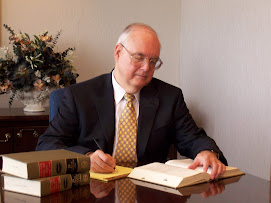ST. LOUIS — The heirs of late "Wizard of Oz" actor Mickey Carroll are suing his caretaker for control of his assets. Carroll was one of the last surviving Munchkins from the 1939 film. He had Alzheimer's disease and died last week in suburban St. Louis at the age of 89. Four months earlier, Carroll signed papers turning control of his assets over to Linda Dodge, who cared for him and his disabled nephew in her home. She still takes care of the nephew, who's in a wheelchair with cerebral palsy. Carroll's other relatives claim Dodge and others took advantage of the actor when he was in the throes of dementia. They estimate that he left an estate of more than $1 million. Dodge denies the claims, calling the disagreement a "family squabble."
I cannot comment on the allegations but I wonder what could have been done ahead of time. I will use this story as if the allegations actually happened.
As a backdrop to this event is the issue of estate family squabbles. Sure, some families get into litigation, most don't, especially when they hear the lawyer insist that the case have some merit and the amount of the attorney retainer. Nevertheless, these cases do happen with emotions akin to divorce-type cases.
Arizona has statutes and case law dealing with vulnerable adults that are taken advantage of. If proven, the estate may be able to recover the loss, if the funds are still around. Better yet is to try to prevent this from happening. If you read the above article, preventing this is easier said then done, but can be done. An issue is time.
If I had a long time to plan, and Mr. Carroll was still very able to create an estate plan, I would put all his assets in a trust and name a successor Trustee. Once Mr. Carroll became unable to manage his affairs, I would seek the statement from his doctor, (and a second opinion doctor to comply with many trusts), saying he was unable to manage his financial affairs. and by trust language, the second successor Trustee named will become the acting Trustee. He or she would then notify all the institutions that manage estate assets and record in the county recorder notice of the change in trustee. With this in place, and notice given on who can sign documents, any transfers by a caregiver or unscrupulous family member will be far more difficult.
If I didn't have very long to plan, and Mr. Carroll was incapacitated, I would do the following, which is more expensive and harder to do (which is typically the case for estates that lack planning).
If incapacity is at all questionable, I would seek an neuro-psych evaluation to declare him incapacitated. With incapacity being proven, I would see a conservatorship hearing to appoint another person in charge of Mr. Carroll's financial affairs, which basically renders him unable to transfer funds without the conservator's consent. With this court order, I would send it to the financial institutions and record in the county where real estate is located in order to put fair warning out there that any assignments of assets are at their own peril. Sure this is expensive and cumbersome, but your best option. Just sending a letter from a doctor and a power of attorney stating that the agent has authority to sign will not, in my opinion, be enough to restrict the transfer of an asset or be considered sufficient notice to third parties that accept transfer of an asset.
A good estate plan, in advance, would have been the best defense to the occurrence above. While he is able, Mr. Carroll is more than free to manage his own affairs, but when necessary, safeguards are in place to protect him for potentially overreaching family and caregivers.

No comments:
Post a Comment